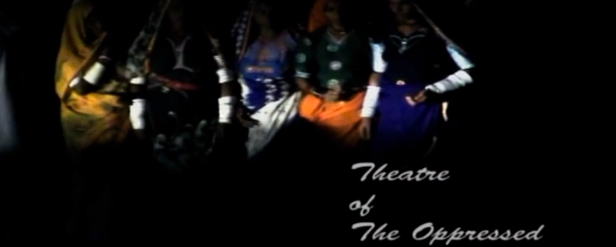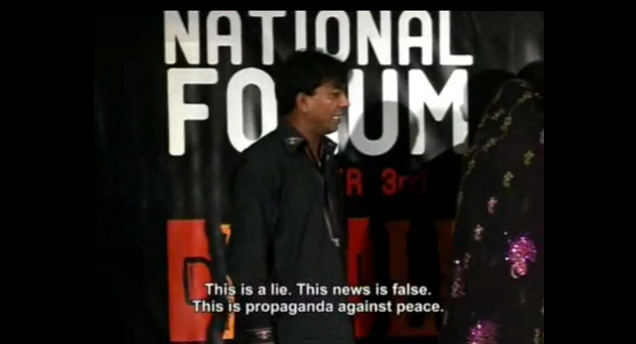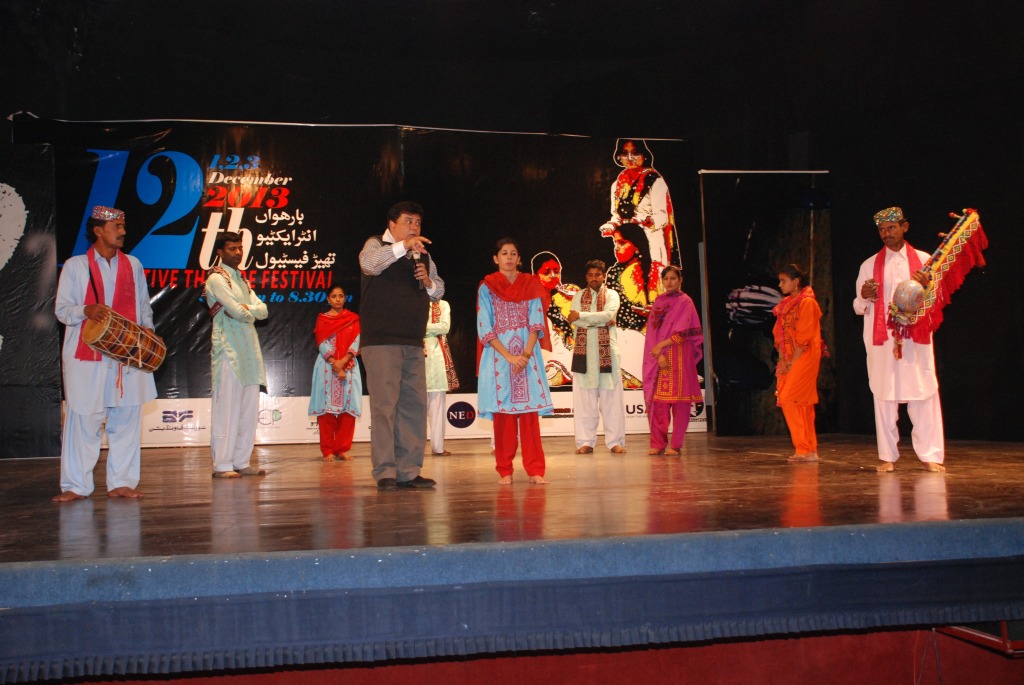Mohammad Waseem
Interactive Theatre Artist
Mohammad Waseem started his career as a sales representative in Pakistan before recognizing his passion for the dramatic arts. Changing his life’s direction, he sought training under the tutelage of the Brazilian theatre director Augusto Boal. The director introduced Mohammad to the “Theatre of the Oppressed”. Enlightened by his mentor, Mohammad developed a methodology for social transformation through theatre. Within three years, he formed 52 theatre activists groups in Pakistan and trained over 500 theatre activists.

Among Mohammad’s efforts, he organized the first annual “Theatre of the Oppressed” Festival in Pakistan attracting 100 theatre activists from his country, half of whom were women.
Mohammad was one of the founding members of the Ajoka and Lok Rehas, which are part of the Parallel Theatre Movement, or “Street Theatre”, that emerged in the 1980s as a movement resisting General Ziaul Haq’s military regime. This regime was responsible for the persecution of political activists, religious and ethnic minorities, communists, intellectuals, journalists, poets, and artists from 1977 to 1988. The regime ordered the murders of an estimated 20,000 people. Thousands more died in state sponsored ethnic and sectarian violence, including the Qasba Aligarh Massacre in Karachi where hundreds were raped and murdered within two hours.
Today Pakistan is a federal parliamentary republic that is also an Islamic democracy, mixing Islamic and secular law. Its laws officially protect the rights of its citizens, including freedom of speech, thought, information, religion, association, press, assembly, and the right to bear arms. In reality, freedom of the press does not include criticizing the government policy or military. Journalists are threatened and are subjects of violence and television stations are shut down for reporting against the government or military. Pakistan’s religious minorities suffer greatly, including the non-Muslims, Ahmadis, Hindus, Sikhs, Christian, and Zoroastrians. The Blasphemy Law, which mandates that any blasphemies of the Quran be met with punishment, usually result in terrorizing religious minorities. Domestic violence is a huge issue in Pakistan. Human Rights Watch estimated that between 70 and 90 percent of women and girls have suffered some form of abuse. Thousands of women are killed each year because of domestic abuse. Sadly, women have no legal option for protecting themselves, as the authorities do not view domestic violence as a crime.
Confronting these issues within his country, in 2000 Mohammad founded and continues to direct the Interactive Resource Center (IRC). Its vision is for a peaceful, democratic, and just society through various tools such as media, training, and interactive theatre. To link the micro issues with macro polices IRC uses media (documentaries, participatory videos, citizen journalism by using cell phone to tell community stories). IRC launched Maati.TV, Pakistan’s first web tv channel in 2011.

Mohammad’s work in interactive theatre deals with human rights issues concerning political education, peace, violence against women, and minorities’ rights. His mission and that of the IRC are to “explore new venues of community mobilization and dialogue” through a process he calls “forum theatre”. The forum theatre works with members of the community, not professional actors. The theatre performs stories about everyday issues, such as domestic abuse or underage marriage. The result for the actors and the audience is discovering various solutions and ways to respond to issues. The IRC has held thousands of such society-changing performances in 87 districts of Pakistan’s urban and remote areas. Because the country is ethnically and linguistically diverse, there are many languages spoken. The primary languages of Pakistan are Urdu and English. In various regions around the country where the theatre travels, people in these communities speak either Punjabi, Pashto, Sindhi, Balochi, Kashmiri, Brahui, Hindko, Shina, or Saraiki. In order to achieve the goals of the theatre: connecting with people, communicating about issues, and encouraging the release of emotions, the actors speak in the primary language of the community for whom they are performing.
Waseem believes that it is through theatre that people and communities share experiences, engage in dialogue, and realize new insights. It is through theatre that people come together and provide support. It is an ideal tool to bear witness to human rights violations, to educate and raise awareness, and to bring about change in policy and laws.



Hi, I’m a PhD candidate working in the US on Pakistani activist theatre with special reference to Theatre of the Oppressed. I’m wondering if you have further information/material on that.
Hi Mir.
I assume you read the story on our Web site: https://www.judischekulturbund.com/pakistan/?
Perhaps you would like to contact Waseem directly, is this what you would like?